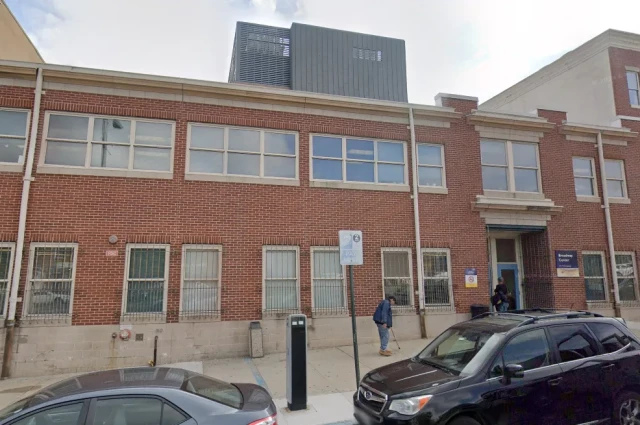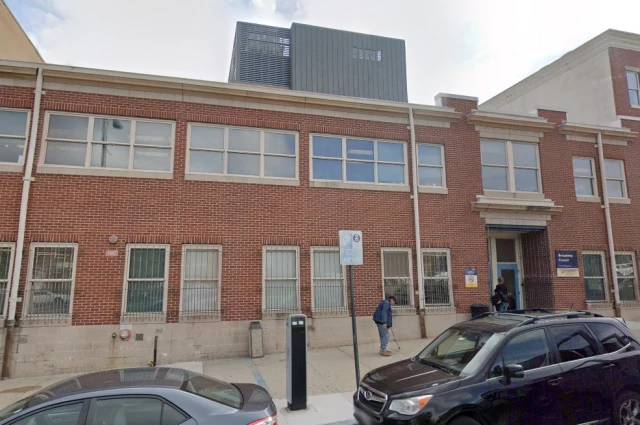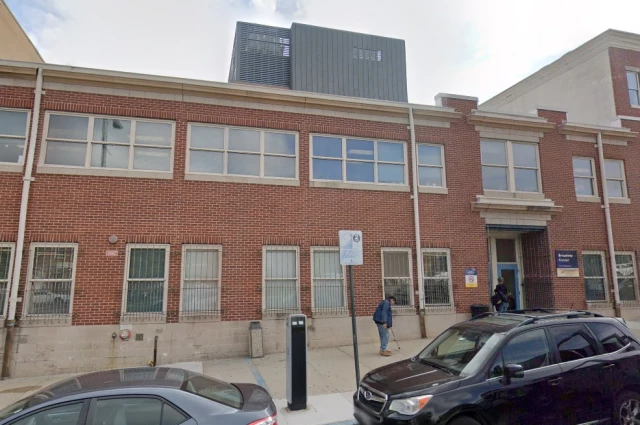Johns Hopkins Broadway Center for Addiction Information
Treatment
Who We Treat
- Male and Female
Treatment Focus
- Co-Occurring Disorders
- Drug Addiction
- Opioids
- Alcohol
Approaches
- 12-Step-Based
- Individual Treatment
- Evidence-Based
- Twelve Step
- Family Therapy
- Group Therapy
- Cognitive Behavioral Therapy (CBT)
- 1-on-1 Counseling
- Life Skills Training
- Relapse Prevention Counseling
Conditions We Treat
- Trauma
- Co-Occurring Disorders
Substances We Treat
- Alcohol
- Prescription Drugs
- Heroin
- Opioids
Languages
- English
- Spanish
Aftercare
- Discharge Planning
- Relapse Prevention Planning
- Intensive Outpatient Program
- Outpatient Treatment
- Employment Counseling
- Housing Services
- Continuing Care
- Employment/Vocational Counseling
- Housing Support
- Support Meetings
Level of Care
- Outpatient
- Intensive Outpatient Program (IOP)
- Co-Occurring Mental Health
- Aftercare/Continuing Care
Experience
On-Site Amenities
- Snacks
Personal Amenities
- Air-Conditioned Rooms
On-Site Activities
- AA/NA Meetings
Special Considerations
- Wheelchair Accessible
- Justice Involved
- Healthy Meals are provided
Smoking and Vaping Policy
- Smoking Not Allowed
- Vaping Not Allowed
Accreditations
-
SAMHSA certification for opioid treatment program (OTP)
SAMHSA's Opioid Treatment Programs (OTP) accreditation is a prestigious recognition that signifies a program's compliance with stringent standards and guidelines established by the Substance Abuse and Mental Health Services Administration (SAMHSA). This accreditation demonstrates an OTP's commitment to providing high-quality, evidence-based care for individuals struggling with opioid use disorder (OUD). It serves as a trusted symbol of accountability and excellence, assuring patients, families, and communities that the OTP offers safe, effective, and comprehensive treatment options for OUD.
-
Drug Enforcement Agency (DEA)
DEA accreditation refers to the process by which a law enforcement agency is recognized by the Drug Enforcement Agency (DEA) as having met specific training, operational, and resource requirements necessary to participate in DEA-led drug enforcement efforts. This accreditation allows the agency to perform DEA-related tasks such as conducting investigations, executing federal search warrants, and participating in joint task forces.
-
The Joint Commission
The Joint Commission accreditation for addiction and behavioral health signifies that a facility has met rigorous standards in patient care, treatment, and safety. This recognition assures patients and professionals of the facility's commitment to providing high-quality, evidence-based care in the fields of addiction and behavioral health, fostering trust and confidence in their services.

Johns Hopkins Broadway Center for Addiction Accepts The Following Insurance Plans
Find the best treatment options. Call our free and confidential helpline today!



